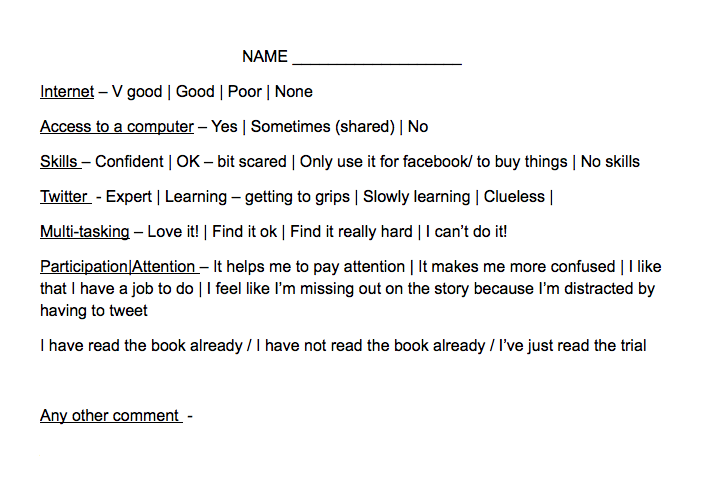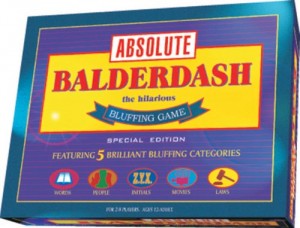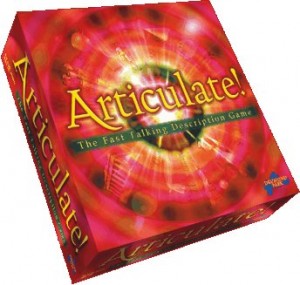 As far back as I can remember my Dad was a returning officer for local, national and European elections. Neither he nor my mother ever attempted to influence how we voted but by God! did they insist that we vote. In truth, they didn’t have to do much insisting, as they raised us to believe that it was important to make our voices heard.
As far back as I can remember my Dad was a returning officer for local, national and European elections. Neither he nor my mother ever attempted to influence how we voted but by God! did they insist that we vote. In truth, they didn’t have to do much insisting, as they raised us to believe that it was important to make our voices heard.
Of course we were warned not to become ’empty vessels that make most noise!’ Rather, we must consider carefully the issues at hand and then vote in whatever way our conscience and personal beliefs dictated. But in their book, and now in mine, the stupidest thing we could do was disengage, abstain from voting and allow others to decide what our future should look like. If we voted, and our side lost, we were free to whinge, secure in the knowledge that we had done all we could do to make our voice heard. But if we failed to vote we lost all whinging rights: if we didn’t care enough to cast our ballot, we had no right to an opinion after the fact.
It is testament to their parenting that they now have five grown up children all of whom react with horror at the thought of someone having a vote and not using it. It’s also testament to the independence of spirit they instilled in each of us that despite having grown up in the same house to the same parents, we rarely agree on anything!
Two months ago now I wrote an Open Letter to Ruairi Quinn identifying what I felt were the real reasons teachers felt drained, demoralised and defeated. It feels like a lifetime ago. I listed exploding class sizes and diminishing subject choice for students; vicious cuts to teacher numbers; the decimation of posts of responsibility alongside the mass proliferation of new initiatives; the insulting & utterly pointless way the Croke Park hours were being implemented and the lack of clarity and support around the new Junior Cycle.
Some 24,483 people read my letter so I guess you could say it struck a chord. Was the Minister among them? Who knows!?! He certainly never replied, which to my mind is quite rude. If he were in my English class I’d have a thing or two to teach him about communication, the first rule being that if someone takes the time to write to you, you should bloody well write back!
All of the issues I identified – posts of responsibility, Croke Park hours, Junior Cycle reform – have been addressed in some small way in the revised Haddington Road Agreement. None have been resolved. The issue of compulsory increased substitution and supervision (thereby reducing even further the time that is available to us to devote to our students; to extra-curricular activities; to pastoral care, class prep, subject planning, literacy and numeracy and integration of IT) remains exactly as it was before, except that those who weren’t doing it can opt out but this time they’ve to pay for the privilege of not doing something they never did and the rest of us have no choice but to do it for free. The CEC – the Central Executive Council have recommended a NO vote and it’s plastered over all of the documentation we have received at school.
Yet I find myself utterly convinced that voting NO to the revised proposals would be profoundly foolish and potentially very dangerous, not just for the teaching profession but for the entire public sector. So why do I feel like that and what, fundamentally, has changed?
Well I guess the fact that no other public sector union has rejected the deal is significant, whether we like it or not. We are alone in a barren desert, with very little public support, like a lone dog howling at the moon.
If we go on strike, can we really expect other public sector unions to support us, when they have taken their medicine – or should I say beating – and we have not? Meanwhile, most in the private sector just find us utterly comical. Given the awful treatment many of them are subjected to on a daily basis (what do you mean you can’t work 12 hr days? Do you really need lunch? No, I don’t think it’s unreasonable to ask you to relocate to China for three months – your pregnant wife and two young kids will be fine!) it’s hardly surprising.
Second of all is the fact that this government have proven themselves more than capable of following through on their threats. They passed emergency legislation as promised (FEMPI) to deal with us when we stood up to them for reneging on the original Croke Park Deal. If we vote no again, they will cut payment for S&S anyway in the new year – they have made this abundantly clear – in which case if we refuse to do S&S unpaid, schools will close. Maybe this is what some people want, but I can’t pretend I have any stomach for it.
Now they are threatening compulsory redundancies (more bully boy tactics) if we again vote no. I have no doubt they will again follow through. Although by rights so-called Labour Minister Ruairi Quinn should be against this on principle, I’ve heard him threaten it enough times by now to believe that he has to follow through on his threat if we vote no, or else he becomes the proverbial boy who cried wolf and loses all credibility. I also think he actually sees no contradiction between his Labour roots and the fact that he may very well become the first Minister in the history of the state to introduce compulsory redundancies in the Public Sector. Why this surprises me I don’t know; by now it seems that anyone with any real Labour principles has already quit the party, while those that remain are happy to embrace a Neo-Liberal agenda – or worse still, they don’t even fully grasp what that is! (Google ‘Pasi Sahlberg GERM’ for more on the negative impact of Neo-Liberal policies on education systems globally).
Irrespective of whether we vote yes or no, pay cuts have been implemented and will not be reversed so now the question becomes, which deal is the lesser of two evils – FEMPI or Haddington Road #2
If we vote yes, of course there are bitter pills to swallow in the form of
- continuing the 33 Croke Park hours – albeit with better differentiation from Sept 2014 onwards;
- unpaid & increased S&S – but as I understand it, it is only 6 hours more annually (from 37 to 43 hours) than the previous agreement irrespective of how many teachers opt in or out.
- fewer hours being available for part-time and subbing teachers due to changes in S&S and sick leave arrangements for existing staff.
Possibly the most significant one, however, is that once we sign up, we’re in. We cannot change our minds down the road about any of the details contained herein as the agreement states “Strikes or other industrial action by trade unions, employees or employers are precluded in respect of any matters covered by this Agreement”. Ah, the irony, from the Government who changed their mind unilaterally about the Croke Park Agreement and told the rest of us to just suck it up!
However, there are also some very significant sweeteners
- Teachers in an over-quota position can be nominated for redeployment (a scheme which I hate by the way!) rather than redundancy (which is way worse!). [This is presuming the government mean what they say and will attempt to introduce redundancies if we vote NO again. Who knows, their word is worth little more than nothing if you ask me, in the context of their abandonment of the Croke Part agreement, but they tend to keep their word when it means getting their own way – in this case, firing people as a pathetic show of their power].
- Teachers who have served 3 years will get their CIDs backdated to Sept 2013 and if we sign up, CID eligibility after 3 years (instead of 4) will become standard. This still sucks, it just sucks less for the 29% of secondary teachers in casual contract based employment. The panel for fixed-term teachers also improves conditions for this very vulnerable group in our schools (I was one of them not too long ago & still bear the scars of the experience).
- The gap between pre and post 2011 entrants will shrink from 10% to 7%. If you ask me different pay scales for new entrants should never have been accepted in the first place (thereby institutionalising the notion of yellow pack workers), but it is a significant improvement in their pay scales (not to Labour the point but I still find it utterly divisive & ridiculous that different pay scales based on the year you began teaching were EVER accepted)
- Increments due will be paid.
- A limited alleviation of the moratorium on posts of responsibility will be implemented to the tune of 300 additional posts (although in most cases, this will have a very limited impact in alleviating difficulties, as B post holders will most likely just move into A post positions, still leaving a void that cannot be filled).
There’s also some expert group talks yadda yadda yadda that to be honest I don’t have much faith in – an expert group on the issue of casualisation (they’ve ignored the advice of these groups in the past); discussions on fair rostering of S&S and on the best use of Croke Park hours. Only time will tell whether these talks make any real difference. The issue of the new Junior Cycle, we are told, is a separate issue, but again ‘talks’ are now on the table so that our concerns are at least presented to those in power.
Part of the deal specifies that no additional hours other than S&S and Croke Park hours will be required. Quite frankly, this made me scoff. I require many many hours of myself above and beyond the regular school day. I always have demanded more of myself than is sane or reasonable because I believe in giving my students the best possible education I can offer them. It’s only a pity the government don’t have the same dedication to our students’ education and future. So I find it both insulting and patronising to suggest that the only hours I do outside of my regular working week are S&S and Croke Park. This may be true of a minority but it is not true of me, nor of the vast majority of teachers I know.
Finally, I think there is a much bigger picture here that a lot of people are missing.
We are alone in resisting the Haddington Road Agreement. If the government decide to make an example of us, we can strike and our schools can close and they can stop paying us and more talks can happen but what exactly do we hope to gain? If those talks fail the government may dig their heels in on compulsory redundancies. It would be easier now during a recession for the government to get public support for ‘less money being spent on public sector wages’ and of course they would do an expert PR job of concealing the negative impact on vital public services. The education of future generations to my mind should be a national priority but to hear certain politicians who know the cost of everything and the value of nothing speak you’d swear education was little more than an inconvenience, an irritating and exorbitant ‘cost’ for the ‘tax-payer’ (also known as the parents of the kids in the education system). If this happens, down the line you can expect nurses and guards and social workers and civil servants to face the very same treatment. The trickle could easily become a flood.
Because when as a politician you place no value on experience and commitment and community and see individuals only as ‘costs’ (the Neo-Liberal agenda in a nutshell) the ‘clever’ thing to do is to fire all of the experienced people who actually demand a living wage and hire instead yellow-pack workers who have no mortgage and no family to feed and no responsibilities, but who also have little in the way of experience. And you inevitably damage the system irreparably. Yet ultimately you don’t care, because it’s cheaper (the race to the bottom drags everybody down) and because you can put a list in your election manifesto promising to ‘fix’ what’s broken without ever admitting that you are the person who broke it in the first place.
That’s the bigger picture.
The stupidest thing you or I as teachers can do now is disengage, abstain from voting and allow others to decide what our future will look like. Be under no illusions: we are choosing between FEMPI and Haddington Road, not Haddington Road and nostalgia for the era before Croke Park hours.
Don’t be bullied, but do make an informed choice.
For the record, I’m not one of the teachers at risk of redundancy, so this post is not about furthering my own personal agenda. I am near the bottom of the seniority list but our school has lost so many English teachers in the past 5 years that I am and will be needed indefinitely into the future in our school. But I also know that this is just a quirk of fate, not a reward for hard work and dedication, which makes me very aware that ‘but for the grace of God go I’.
Teachers who are low down the seniority list and a long way from retirement have the most to lose if the government mean what they say and are not just bluffing. I’m reliably informed that there are few, if any, teachers in this position on the Central Executive Council – the people within the ASTI who are recommending a NO vote. Are we willing to play roulette with their futures? That’s what each of us needs to decide…
So Rock the Vote.
If we vote, and our side loses, whichever side we choose, we are free to whinge, secure in the knowledge that we did all we could do to make our voices heard. But if we fail to vote we lose all whinging rights: if we don’t care enough to cast our ballot, we have no right to an opinion after the fact.









